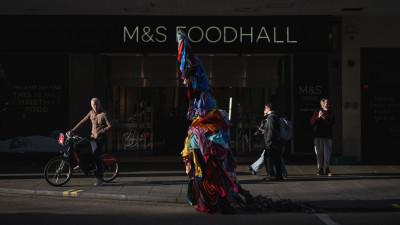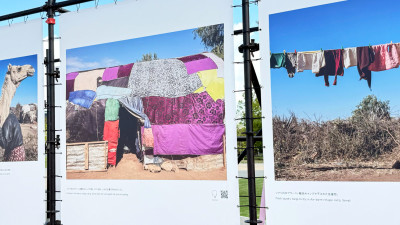Research presented this morning at the SB London conference reveals that many of the world’s consumers lay the responsibility of solving global environmental issues mostly at the door of businesses.
Consumers Worldwide Think Business Should Solve Environmental Problems
Research presented this morning at the SB London conference reveals that many of the world’s consumers lay the responsibility of solving global environmental issues mostly at the door of businesses.
The research, funded by the Forest Stewardship Council (FSC) and presented this morning by FSC’s Chief Marketing Officer, Etienne McManus-White, showed that 80 percent of consumers agreed that companies should be responsible for fixing the environment. It also indicated that, while consumers better trust companies’ environmental claims when they are backed by certifications indicating that their products are responsibly sourced, certification marks are in turn more compelling to consumers when they are endorsed by trusted brands and environmental NGOs such as WWF and Greenpeace; the credibility of a certification seal together with the consumer equity of a trusted brand creates an influence that is greater than either group can exert on its own.
FSC’s Global Consumer Research Highlights aimed to profile the eco-conscious values and purchasing habits of global mainstream consumers; investigate loyalty to environmentally friendly brands; look at the influence of for-profit brands on purchasing of FSC-certified products; and investigate barriers to more sustainable behaviors.
The study, conducted by GfK with over 9,000 respondents in 11 countries, also showed that most consumers are concerned about environmental pollution and global climate change. Most consumers rated environmental pollution (84 percent) and global climate change (82 percent) a high concern — above-average concern was shown by consumers in Brazil, South Africa and India; below-average concern found in China, Hong Kong and Japan; and European and Australian consumers fell somewhere in the middle.
Globally, most consumers polled believed their purchases could make a difference and many intended to increase their eco-spending in the next year. 59 percent also said they were willing to pay more for eco-friendly products and 53 percent were less likely to switch from a environmentally friendly brand to a conventional one.
While more than three-quarters of consumers polled said they believed they could make a difference by increasing their spend on eco-friendly products, not surprisingly the likelihood of following through with this behavior increased if the consumer gained a direct benefit; making more conscious shopping decisions were less likely when the consumer had to invest time and energy into the behavior.
FSC’s business development director, Marcelle Peuckert, hailed the organization’s participation in SB London reflected the global recognition of FSC certification as a trusted mark of products sourced through responsibly managed forestry practices.
“With this research, FSC has gained crucial insights that demonstrate what we can all be doing to better reach global consumers and encourage more sustainable consumption habits,” said Peuckert. “Ensuring the health of our forests is the planet's best defense against climate change, and consumers have told us clearly that partnering with for-profit brands to share this message can be good for people, the planet and the bottom line.”
Stay tuned for more updates and highlights from SB London.
Related Stories
 MARKETING & COMMUNICATIONS
MARKETING & COMMUNICATIONS
Brands Are Walking Back Their ESG Commitments — Here’s Why They Should Be ‘Branding’ Them, Instead
 MARKETING & COMMUNICATIONS
MARKETING & COMMUNICATIONS
Black Friday Clothing Zombie ‘Speaks Volumes’ About Overproduction in Fashion






